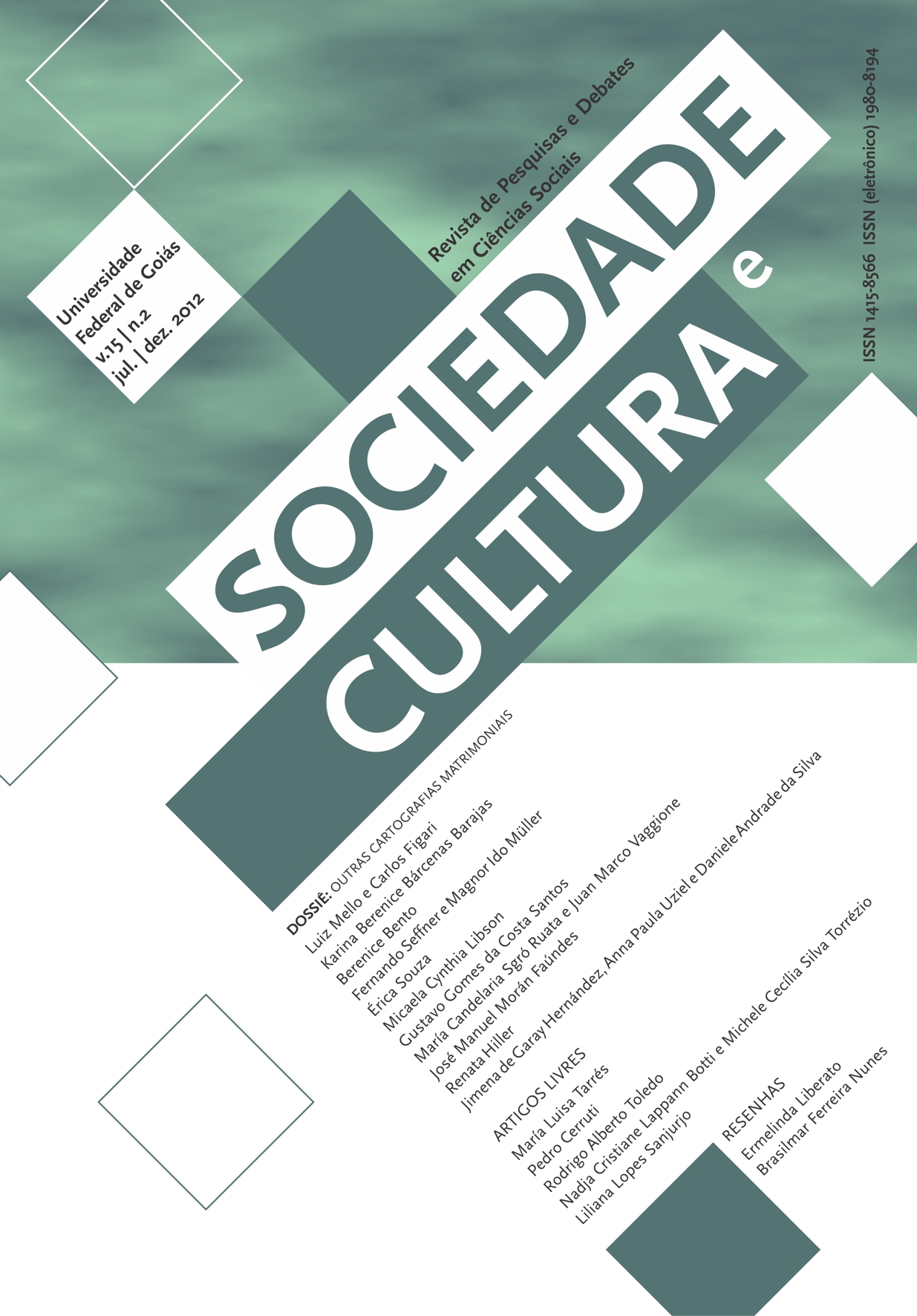Cidadania e direitos sexuais na África do Sul: reflexões sobre o reconhecimento legal das uniões entre pessoas do mesmo sexo
DOI:
https://doi.org/10.5216/sec.v15i2.22400Keywords:
cidadania, direitos sexuais, uniões entre pessoas do mesmo sexo, reconhecimento legal, África do SulAbstract
O presente artigo analisa a trajetória de construção de direitos sexuais relativos à conjugalidade de casais do mesmo sexo na África do Sul. Tendo por base os achados da pesquisa de doutorado, intitulada Cidadania e direitos sexuais: um estudo comparativo do reconhecimento legal das uniões entre pessoas do mesmo sexo no Brasil e na África do Sul,o texto refletirá sobre a forma como ativistas gays e lésbicas idealizaram e colocaram em prática a luta pelo reconhecimento legal dos casais do mesmo sexo naquele país.Analisar-se-á o contexto social e político do país, com ênfase no momento de transição para o regime de maioria negra, juntamente com as estratégias de ação de ativistas gays e lésbicas, seus principais opositores e os resultados, intencionais ou não, de suas mobilizações em termos de ganhos legais.Downloads
Download data is not yet available.
Downloads
Published
2013-02-05
How to Cite
SANTOS, Gustavo Gomes da Costa. Cidadania e direitos sexuais na África do Sul: reflexões sobre o reconhecimento legal das uniões entre pessoas do mesmo sexo. Sociedade e Cultura, Goiânia, v. 15, n. 2, p. DOI: 10.5216/sec.v15i2.22400, 2013. DOI: 10.5216/sec.v15i2.22400. Disponível em: https://revistas.ufg.br/fcs/article/view/22400. Acesso em: 9 feb. 2026.
Issue
Section
Thematic Dossier
License
Authors who publish in this journal agree to the following terms:
- Authors retain the copyright and grant the journal the right of first publication, the work being simultaneously licensed under the Creative Commons Attribution License, which allows the sharing of the work with acknowledgment of authorship and of the initial publication in this journal;
- Authors are authorized to enter into additional contracts separately, for non-exclusive distribution of the version of the work published in this journal (eg, publishing in an institutional repository or as a book chapter), with acknowledgment of authorship and of the initial publication in this journal;
- Authors are allowed and encouraged to post and distribute their work online (eg, in institutional repositories or on their personal page) at any point before or during the editorial process, as this can bring productive change as well as increases the impact and the citation of the published work (see O Efeito do Acesso Livre).



